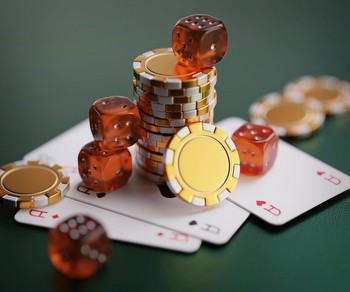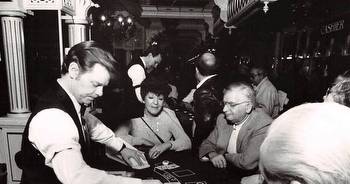New Jersey No Longer Cashing In Playboy Casino Chips

Gamblers looking to cash in a casino chip from the former Playboy Casino are now officially out of luck. The New Jersey Casino Control Commission has closed an $875,000 account meant to cash in chips from the former Atlantic City casino.
The move brings an end to a unique situation that began with the property’s opening in the early 1980s – almost. The funds will be kept in the state’s unclaimed property division and will require state legislation to officially shift the cash to another state agency or use.
Playboy Denied A Gaming License
In July, the New Jersey Division of Gaming Enforcement (NJDGE) announced it would no longer exchange the chips for cash after maintaining the account since 1982. The fund stems from Playboy being denied a gaming license in 1982.
Playboy’s partner in the venture, the Elsinore Corporation, kept the casino open but changed the name as directed by the ruling. The casino became the Atlantis in 1984, but Elsinore’s license renewal was also then denied in 1989.
Gaming regulators forced Elsinore to deposit $875,000 with the state treasury to cover the cashing in of Playboy and Atlantis chips.
“This money was reserved for gamblers who were owed money by Playboy or Atlantis, with such debts represented by gaming chips,” NJDGE director Chris Rebuck said. “Gamblers could redeem their chips with the Treasury until the fund ran out of money. No time limit was placed on the period for redemption.”
Plenty Of Chips Remained In Circulation
In July, the agency said it would no longer cash in the chips. Rebuck said Playboy contracted with a company at the time to destroy its chip inventory, but that didn’t happen. That means more chips may be remaining that were never used by gamblers. The order to stop cashing them in is now meant to prevent fraudulent claims.
“Almost 40 years have passed since the casino property, which no longer exists, was operated under the Playboy name,” Rebuck said. “This is more than sufficient time for actual Playboy gamblers to have redeemed any chips or other instruments of gaming winnings owed by the former casino. At this time, any such chips are most likely to have been obtained by gift, inheritance, or sale from the secondary market.
“The fund held by treasury was meant for the benefit of the original patrons who have winnings to claim. It was never intended to be an open-ended invitation for subsequent acquirers of such chips to cash them in.”
The belief that excess chips still remained was affirmed in 2008 when a construction worker in Hernando, Mississippi hit a jackpot of the chips in a concrete slab while digging as part of a community infrastructure project. The company in charge of destroying the chips stated that they did not know how they instead ended up buried more than 1,000 miles away from the casino.
Residents were soon filling up buckets with chips, prompting the New Jersey attorney general’s office to begin investigating.
“At first people thought it was neat and folks were grabbing handfuls of them, including the mayor and police chief, I understand,” gaming consultant and former gaming regulator Daniel Heneghan told The Press of Atlantic City.
Those chip owners may not be able to cash in their chips anymore, but at least they have a collector’s item with quite an interesting backstory.































